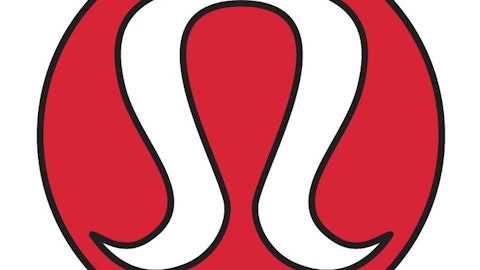At the end of the day, if online gambling is opened up, then there’s nothing stopping companies like King from participating. How well it could compete is the question, but an ability to cross-sell or upgrade its existing user base to an online gambling platform wouldn’t be a stretch.
But there are questions surrounding King’s potential IPO. All you have to do is watch the Zynga Inc (NASDAQ:ZNGA) story unfold to question why a company with a similar business model would tempt fate. Earlier this month, Zynga Inc (NASDAQ:ZNGA)’s reality came to light when the company announced an aggressive cost-cutting program that includes slashing nearly one-fifth of its workforce by summer’s end, taking charges of about $30 million over the next couple of quarters and reporting an approximate $15 million stock-reversal expense.
At the end of the day, the company expects to save as much as $80 million in pretax annualized cash expenses. It also expects to report a second-quarter loss and bookings that are at the lower-end of previously offered guidance. The company itself said that with the exception of Farmville, its games are “under-performing.” Revenue appears to be on track as expected.
Know when to fold ’em
When Zynga Inc (NASDAQ:ZNGA)’s relationship with Facebook took a turn, it lost a whole lot more than the cachet of being able to promote its brand on the social-networking giant’s site. It lost access to more than one-billion users and access to data on that base. Since March 31, which is the date the Zynga Inc (NASDAQ:ZNGA)-Facebook dynamic formally changed, shares of the online gaming company are down about 9%.
Zynga Inc (NASDAQ:ZNGA)’s fate, analysts suggest, lies in its ability to capture mobile market share. The opportunity is there, as according to eMarketer cited in a recent article in The Wall Street Journal, the market for virtual goods, a Zynga Inc (NASDAQ:ZNGA) trademark, is making a mobile push with sales growth of 32% pegged for this year alone and an anticipated $1 billion plus in sales on tap for 2015.
King is not Zynga. But it’s still going to be competing with the online gambling community for not only players but also investors.
Another way to play the expansion of the gambling industry to the Internet is by investing in security stocks, like Lifelock Inc (NYSE:LOCK). The rise of online gambling is going to cause more of the population to become concerned with the security of their financial information and their identities. Lifelock Inc (NYSE:LOCK) and other security companies can use this as leverage to promote their brands.
Perhaps it will help the company swing to a profit after reporting a first-quarter net loss of $4.1 million, or -$0.05 per diluted share. Revenue climbed 42% in the period to $82 million in the year-ago period. Lifelock Inc (NYSE:LOCK) generated $11.5 million in free cash flow and spent $1.3 million in capex in the first quarter. If this company plays its cards right, I see it benefiting from the rise of online gambling.
As of March 31, the company had a total of $145.3 million in cash and cash equivalents, which is enough to fund its operations for the next year, especially considering there is “no outstanding debt,” according to the latest 10Q filing.
Conclusion
So maybe online gambling actually crushing the candy game is a bit of a stretch, especially if the market opens up and companies like King can eventually compete with the Boyd Gaming’s of the world. In this case, the barriers to entry are weakened and the casino stocks don’t hold as great an advantage.
Considering the snail’s pace at which legislation typically takes shape in the U.S., the best bet would be the casino stocks and not operators like Zynga that might play in online gambling eventually. I would place a bet on Boyd Gaming, and I’d double that bet if it shows signs that it is addressing its debt load. Another way to play this is in security stocks. If Lifelock Inc (NYSE:LOCK) markets itself right, it could ride this wave too so that’s a company to watch.
Keep in mind that once casinos are forced to show their hand and the net for online-gambling players widens to more companies as a result of new policies, the game changes entirely.
Gerelyn Terzo has no position in any stocks mentioned. The Motley Fool has no position in any of the stocks mentioned. Gerelyn is a member of The Motley Fool Blog Network — entries represent the personal opinion of the blogger and are not formally edited.
The article Why Online Gambling Will Crush the Candy originally appeared on Fool.com is written by Gerelyn Terzo.
Copyright © 1995 – 2013 The Motley Fool, LLC. All rights reserved. The Motley Fool has a disclosure policy.

